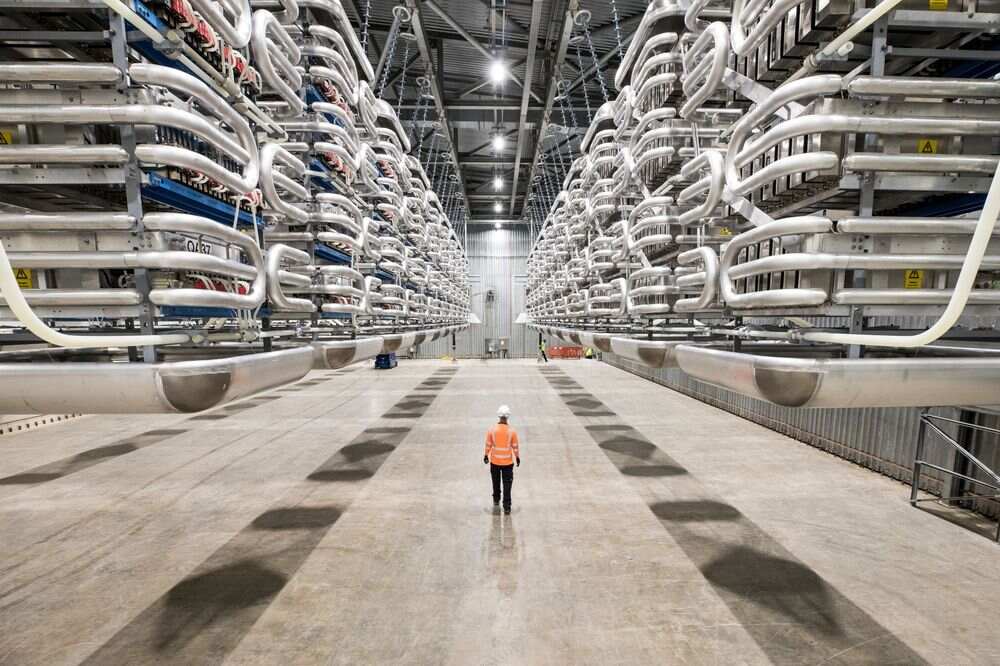The France and England shared power grid was built in 1961. The joint owners of the power grid were EDF Energy (Électricité de France) and CEGB (the Central Electricity Generating Board UK). This interconnector was the largest electrical link in the world at that time and was capable of carrying 160 MW using two single-conductor cables. This capacity was increased over time as the national grid was modernized in both England and France.
High voltage DC power was used in the IFA Interconnector. This transmission system was more beneficial in various aspects such as being less expensive and having lower power losses.
The length of the England France shared power grid cable
The overall length of the cable is 77 km, in which 45 km cable is laid on seabed. This project was very difficult; it needed the most modern technology at the time for hydrographic surveying and drilling. The 45 km seabed route required handling steep gradients and hard rocks, particularly in the route between Sangatte and Folkestone.
For this job a huge submarine robot was used, which was guided and operated by an umbilical cord from a ship. This robot was able to cut seabed and was used to extract 200,000 tons of chalk, rocks, and clay. 600 mm wide and 1.5 meter deep trenches were created by this robot, and another specially designed cable-laying undersea robot, which was responsible to clear trench with the help of high pressure jets, followed it.


The maximum power transmission by the cable or capacity of power grid
The first power exchange was carried out in January 1986. The power transmission capacity of the power grid was 2,000 MW.
The cost of the project
The cost of the whole project was £700 million at 1980’s prices. It took just half as much money compared to the construction of a power station of equivalent capacity. This project was a less costly and easier way to transfer electricity.
Why DC current is used in place of AC current
In the England France shared power grid, DC current was used because of the reasons given below:
· The cost of transmitting high voltage DC current over long distances is lower than that of AC current transmission.
· The power loss due to AC current transmission is more for undersea cables compared to transmission by DC current.
· Use of DC transmission results in an increase in the capacity of power grid. The increased capacity of the power grid provides more benefits.
This shared power grid system was very successful in its initial stage. One cable of the two single conductor cables carried electricity, and the other one was used for the reverse loop. However, the main problem with this power grid was that its major part was laid on the seabed. The conductor cables were often damaged by ship’s anchors and heavier fishing trawls, which started appearing in 1970s. The maintenance of these damaged cables was very expensive.
How the problem was solved
This problem of damage was avoided by covering the link by four trenches into the seabed. Each trench carries two cables, which are positive and negative cables. These trenches were made to avoid disruption of marine vehicles from their magnetic field.
England and France also constructed converter stations, which were used to transform AC to DC and further DC to AC. Each country was responsible for constructing two pairs of cables.
Summary
The contract for this power grid between France and England expired in March 2001. However, this power grid is open for any company having a preferential reservation.
A company can get the contract only through a “first-come, first-served” process, but a daily auction of electricity transfer was started on 31 March 2001. The rights were sold for England to France and for France to England separately. The auction had one price, which was €3 MW/day in either direction. The price has been changing with respect to the time.
This power grid system served both countries and helped to transfer large amounts of electricity for many years at very low cost.


